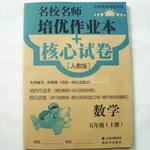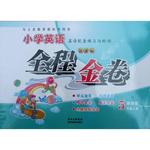题目内容
阅读理解。
An office meeting starts at 10 a.m.. Hans, a German, is already waiting at 9:55. Nathan, an American,
arrives right at 10 o'clock. In the next five minutes a few others hurry in. But Raul, the visitor from Brazil,
walks in at 10:30. He doesn't even think he's late. How different the understanding of time is around the world! Germans like arriving early. Americans plan to arrive just on time. Brazilians think it OK to be half an hour late.
In 1884, a clock in Greenwich, England, set the standard (标准的) time around the world, which is known
as GMT (Greenwich Mean Time). But it couldn't standardize (使标准化) when people will arrive for a 10 a.m. meeting.
As people have different understanding of time, all cultures (文化) can be put into one of the two groups:
time-oriented (导向的) and event-oriented. Time goes first in time-orient cultures. In event-orient culture,
what happens is more important than when. Such knowledge is important for today's world travelers.
Not understanding these different ideas about time can sometimes bring trouble. For example, American
students often quickly exchange "how are you?" and "fine" as they rush to make class on time. But event-orient
students see this exchange as impolite. Before they can say anything more than "fine", the American student
has already hurried past them.
What can the world traveler do to avoid (避免) such time-related trouble? Follow the age-old rule: When
in Rome, do as the Romans do.
arrives right at 10 o'clock. In the next five minutes a few others hurry in. But Raul, the visitor from Brazil,
walks in at 10:30. He doesn't even think he's late. How different the understanding of time is around the world! Germans like arriving early. Americans plan to arrive just on time. Brazilians think it OK to be half an hour late.
In 1884, a clock in Greenwich, England, set the standard (标准的) time around the world, which is known
as GMT (Greenwich Mean Time). But it couldn't standardize (使标准化) when people will arrive for a 10 a.m. meeting.
As people have different understanding of time, all cultures (文化) can be put into one of the two groups:
time-oriented (导向的) and event-oriented. Time goes first in time-orient cultures. In event-orient culture,
what happens is more important than when. Such knowledge is important for today's world travelers.
Not understanding these different ideas about time can sometimes bring trouble. For example, American
students often quickly exchange "how are you?" and "fine" as they rush to make class on time. But event-orient
students see this exchange as impolite. Before they can say anything more than "fine", the American student
has already hurried past them.
What can the world traveler do to avoid (避免) such time-related trouble? Follow the age-old rule: When
in Rome, do as the Romans do.
1. If the school starts at 8:30 a.m., what time does your German friend probably arrive?
A. Around 8:25 a.m.
B. Right at 8:30 a.m.
C. Around 9:00 a.m.
D. After 9:00 a.m.
B. Right at 8:30 a.m.
C. Around 9:00 a.m.
D. After 9:00 a.m.
2. Which of the following does not belong to the time-oriented culture?
A. People care about time more than anything else.
B. People don't really mind whether they are late.
C. People often hurry past you with short greetings.
D. Everything usually takes place at the planned time.
B. People don't really mind whether they are late.
C. People often hurry past you with short greetings.
D. Everything usually takes place at the planned time.
3. What does the underlined sentence "When in Rome, do as the Romans do." mean in this passage?
A. You should do everything as the Romans do when you go to Rome.
B. You should do what the Romans tell you to if you are in Rome.
C. You should know the time-idea of the local people and do as they do.
D. You should do everything as the local people do when you are in a new place.
B. You should do what the Romans tell you to if you are in Rome.
C. You should know the time-idea of the local people and do as they do.
D. You should do everything as the local people do when you are in a new place.
4. Which of the following is true?
A. People from different cultures have the same idea about time.
B. It's quite usual for a time-oriented person to be late.
C. Different understandings of time never bring any trouble.
D. An event-oriented person may feel uncomfortable in the USA.
B. It's quite usual for a time-oriented person to be late.
C. Different understandings of time never bring any trouble.
D. An event-oriented person may feel uncomfortable in the USA.
5. Which of the following is the best title?
A. Greenwich Mean Time
B. How to Avoid Time-related Trouble
C. Different Cultures, Different Understandings of Time
D. Time-oriented Culture
B. How to Avoid Time-related Trouble
C. Different Cultures, Different Understandings of Time
D. Time-oriented Culture
1-5 BABCD

练习册系列答案
 名校名师培优作业本加核心试卷系列答案
名校名师培优作业本加核心试卷系列答案 全程金卷系列答案
全程金卷系列答案
相关题目
| 阅读理解。 | ||||
| An old farmer lived with his grandson. Each morning, the 1 got up early and read his Bhagavad Gita (薄迦梵歌). One day the grandson asked, "Grandpa! I try to read the book like you 2 I can't understand it, and I forget it easily. What's the 3 of reading it?" The grandfather said, "Take this coal (煤炭) basket down to the 4 and bring me back a basket of water." The boy did as his grandfather 5 , but all the water ran 6 he got home. The grandfather laughed, "You'll have to move faster next time." This time the boy 7 faster, but again the basket was empty. He told his grandfather that is was 8 to carry water in a basket. He wanted to use a bottle instead, but the old man said, "I just want a basket of water. You're not 9 hard enough." The boy wanted to show his grandfather that the water would surely run. He again put the 10 into the river and ran hard. But there wasn't anything in it again. He said 11 ,"Look, grandpa, it's useless!" "Watch the basket." said the grandfather. For the first time the boy 12 the basket was different. It had changed from a dirty old coal basket into a 13 one, inside and out. "Boy, you might not understand or remember 14 when you read the book, but when you read it, you will be 15 , inside and out. That's what you got from it." | ||||
|